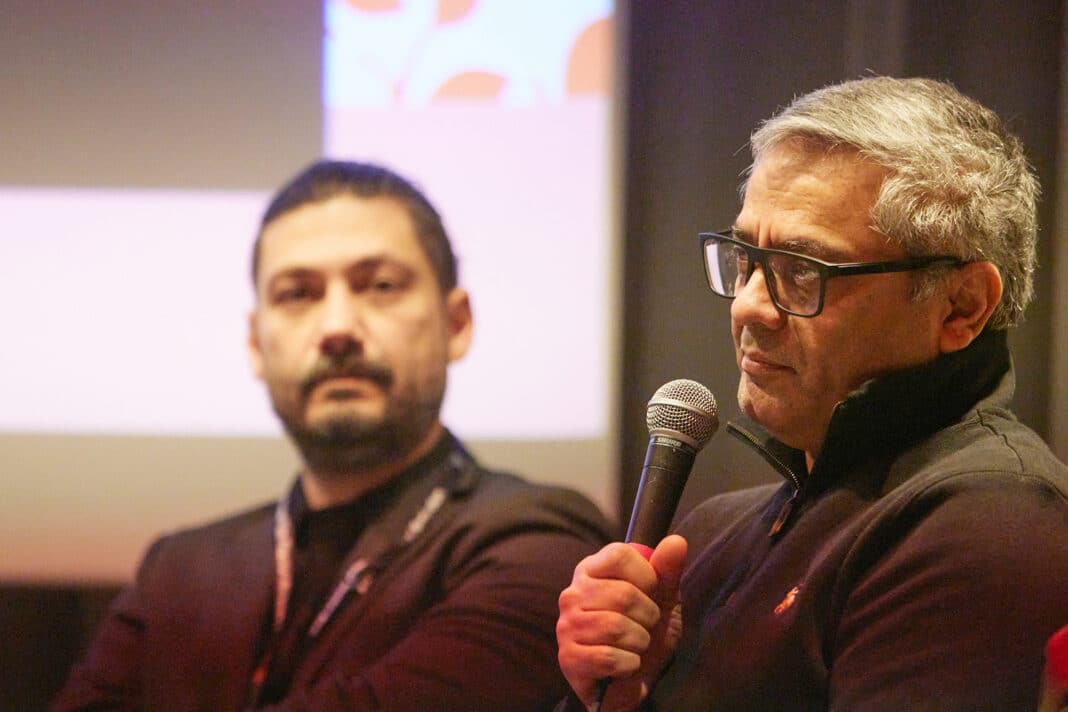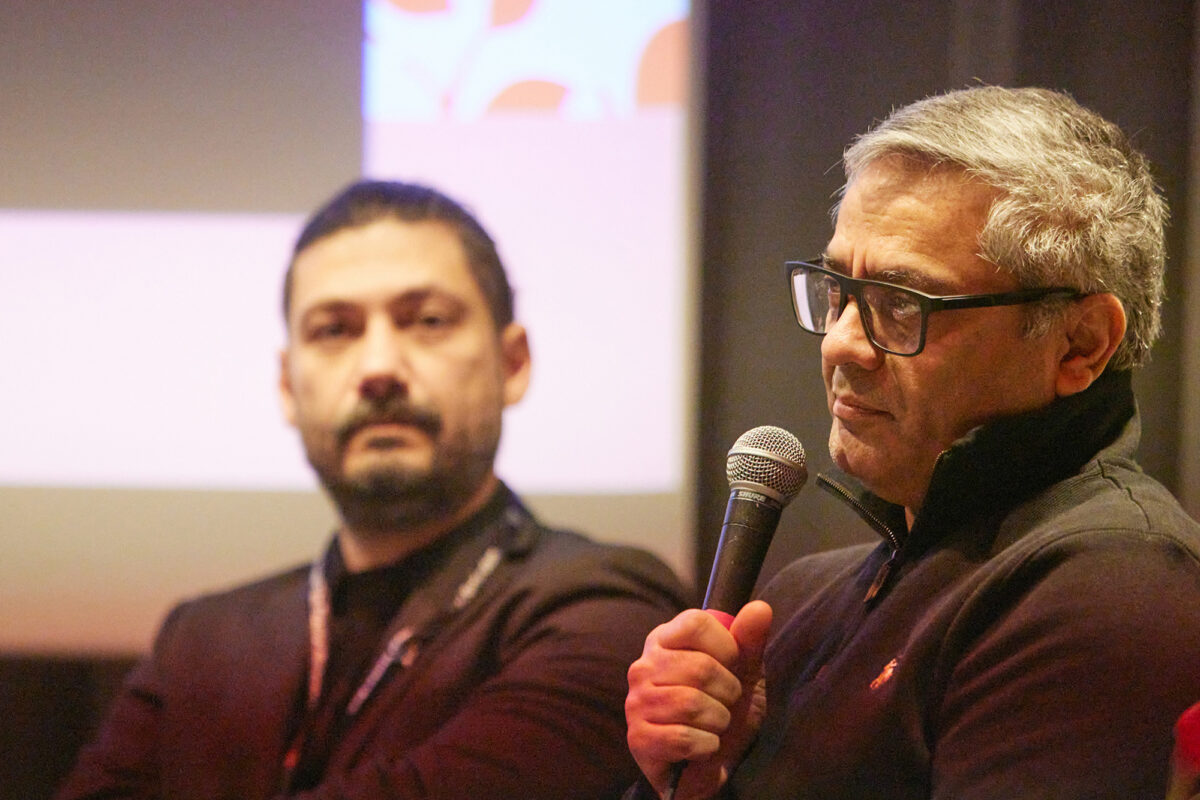Filmmakers from Iran, Turkey, Argentina and Italy shared their experiences making films in countries under authoritarian regimes at the “Cinema and the Rise of Authoritarianism” Tiger Talk, held Feb. 3 as part of the 54th International Film Festival Rotterdam (IFFR).
The panel featured Iranian director Mohammad Rasoulof, Argentine filmmaker Albertina Carri, Turkish director Firat Yücel and Italian actor-producer Pier Giorgio Bellocchio. Moderated by Rebecca De Pas, the discussion was organized in collaboration with the International Coalition for Filmmakers at Risk, of which IFFR is a founding member.
Speaking to a room of festivalgoers and journalists, the panelists detailed the legal, institutional and political pressures facing filmmakers in their countries. According to IFFR, the conversation addressed how both authoritarian regimes and certain democracies interfere in the production, distribution and presentation of films.
Rasoulof, whose feature “The Seed of the Sacred Fig” screened in the festival’s Limelight section, opened the discussion by reflecting on 15 years of conflict with Iranian security forces and the judiciary. He emphasized that he is not the first to confront this system and will not be the last.
He cited the case of Navid Mihandoust, who has spent two years in prison; Behtash Sanaeeha and Maryam Moghaddam (directors of “My Favorite Cake”), who remain banned from leaving Iran; and the legal cases brought against the cast and crew of “The Seed of the Sacred Fig” and other recent projects.
He described a tightly controlled state system in which filmmakers must obtain production and distribution permits from the Ministry of Culture and Islamic Guidance, often shaping scripts to preempt official objections. “From the moment you're writing the script, you're confronted with questions like, ‘How can I write this in a way that allows me to still film it without getting arrested?’” Rasoulof said.
He continued, “Even from the scriptwriting stage, you're already thinking about what’s feasible and finding ways to bring the story as close as possible to your vision, while still managing to complete the filming.”
Rasoulof continued to say that these constraints inevitably shape the form of Iranian cinema, giving rise to a new cinematic language that emerges directly from repression.
Speaking about “The Seed of the Sacred Fig”—which won the Special Jury Prize at the Cannes Film Festival—Rasoulof described his hesitation about making the film, citing the risk to the cast and crew and the possibility that the project would remain unfinished. He said the film’s completion was made possible by the commitment of its team, who were directly influenced by the “Woman, Life, Freedom” movement.
“My colleagues—both technical crews and those who were set to appear as actors in the film—had all decided to advance their civil struggle by participating in a film where they felt they had the artistic freedoms necessary to do so,” he said, adding that the movement has inspired filmmakers to work without official permission or, even when pursuing approval, to allow its spirit to be reflected in their work.
When asked by De Pas whether the success of the film could be used against him and other independent productions in Iran, Rasoulof said the state’s actions are impossible to predict. The Iranian regime, and particularly the security-driven structure around cinema, does not operate by consistent logic, he said.
When asked whether the film’s international visibility could lead to further state reprisals, Rasoulof said Iranian authorities act without predictable logic. He noted that actress Soheila Golestani, who appears in the film, had been invited to serve on the Tiger Competition jury but was barred from leaving the country.
He added that the entire team behind the film is facing legal action. “The court session related to this film, involving everyone who participated in the project, took place over a month ago,” Rasoulof said. “At the end of the session, those involved in the film were faced with two serious charges under the Iranian judicial system: propaganda against the regime and promoting immorality.”
He noted that the authorities had chosen to delay any verdicts until after the Oscars, where the film is nominated. “This situation has created a deterrent effect, and I cannot predict how they will react after the Oscars ceremony.”
He concluded: They open doors and inspire the next generation of filmmakers to pursue paths beyond those dictated by the government.”
Rasoulof concluded by underscoring the risks faced by filmmakers working without state approval. “Filmmakers who dare to create such films are always at risk, not just because they make films that the authorities do not want to hear, but also because their courage is contagious,” adding that their defiance can inspire a new generation of filmmakers “to pursue paths beyond those dictated by the government.”
“The Seed of the Sacred Fig” had its Dutch premiere on Feb. 2 at IFFR. Rasoulof was present for the screening alongside festival director Vania Kalogerakis and dedicated the evening to Golestani.

